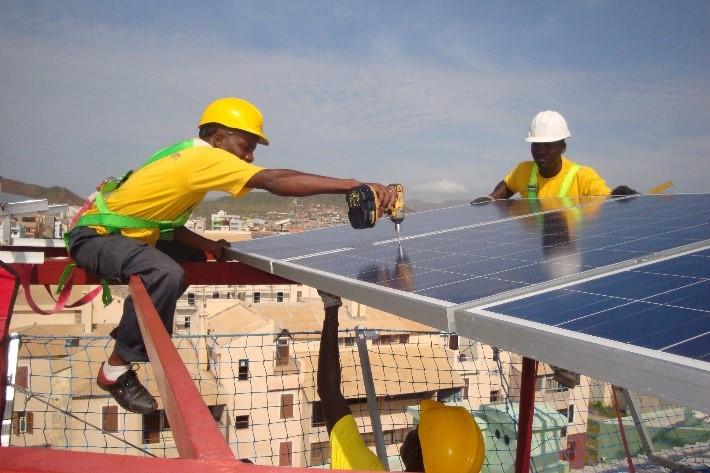India is considering expanding its solar STAR-C initiative operated by ISA, to a number of Pacific Island countries.
About STAR-C
Solar Technology and Application Resource Centre (STAR-C) is one of the initiative of International Solar Alliance (ISA).
Objective:
The main objective of STAR-C is to create a strong network of institutional capacities within IAS member states to enhance quality infrastructure for the uptake of solar energy product and service markets, particularly in least developed countries and small island developing states.
Governance:
The STAR-C project is jointly implemented by International Solar Alliance (ISA) and United Nations Industrial Development Organization (UNIDO) is supervised by the Supervisory Committee.
Initial Focus:
Initially, the focus was on the Economic Community of West African States, the Pacific Island Forum, and the East African Community.
Expansion:
India is considering expanding STAR-C to a number of Pacific Island countries with aim to promote solar power ecosystems and addressing climate change in the region.
International Solar Alliance (ISA):
The International Solar Alliance is an alliance of more than 120 signatories, most being sunshine countries, which lie either completely or partly between the Tropic of Cancer and the Tropic of Capricorn.
Objective:
The primary objective of this alliance is to work for efficient consumption of solar energy to reduce dependence on fossil-fuels.
Joint-Effort:
The ISA was conceived as a joint effort by India and France to mobilize efforts against climate change through the development of solar energy solutions.
Headquarter:
It is the first International intergovernmental organization to be headquartered in India.
Administration:
ISA is headed by the Director General. The Director General leads the operations and carries out the functions of the ISA Secretariat. He is responsible to the ISA Assembly. He has a term of four years and is eligible for re-election.
Eligibility:
All member states of the United Nations are eligible to join the ISA. Countries that do not fall within the Tropics can join the alliance and enjoy all benefits as other members, with the exception of voting rights.
ISA’s ‘Towards 100’ Strategy:
The ISA is guided by its ‘Towards 100’ strategy which aims to mobilise USD 1,000 billion of investments in solar energy solutions by 2030 while delivering energy access to 1,000 million people using clean energy solutions and resulting in installation of 1,000 GW of solar energy capacity.
Significance:
Through this work, ISA has:
- Identified and designed and tested new business models for solar projects.
- Supported governments to make their energy legislation and policies solar-friendly through ease of doing solar analytics and advisory.
- Pooled demand for solar technology from different countries and drove down costs.
- Improved access to finance by reducing the risks and making the sector more attractive to private investment.
- Increased access to solar training, data and insights for solar engineers and energy policymakers.



 Indian Olympic Medal Winners List Till N...
Indian Olympic Medal Winners List Till N...
 Who is the Inventor of the Gramophone?
Who is the Inventor of the Gramophone?
 HS Dhaliwal Appointed New DGP Of Andaman...
HS Dhaliwal Appointed New DGP Of Andaman...
